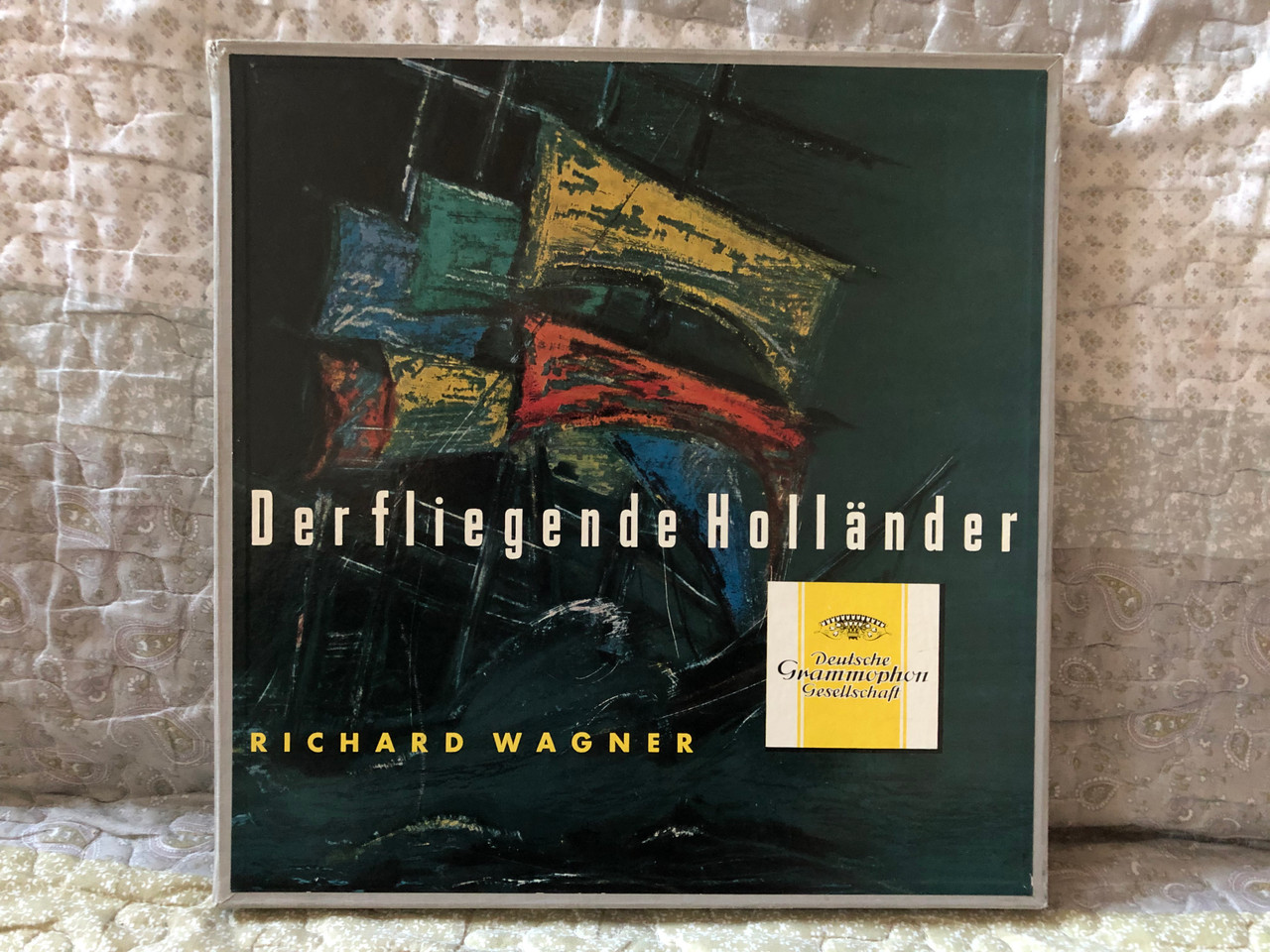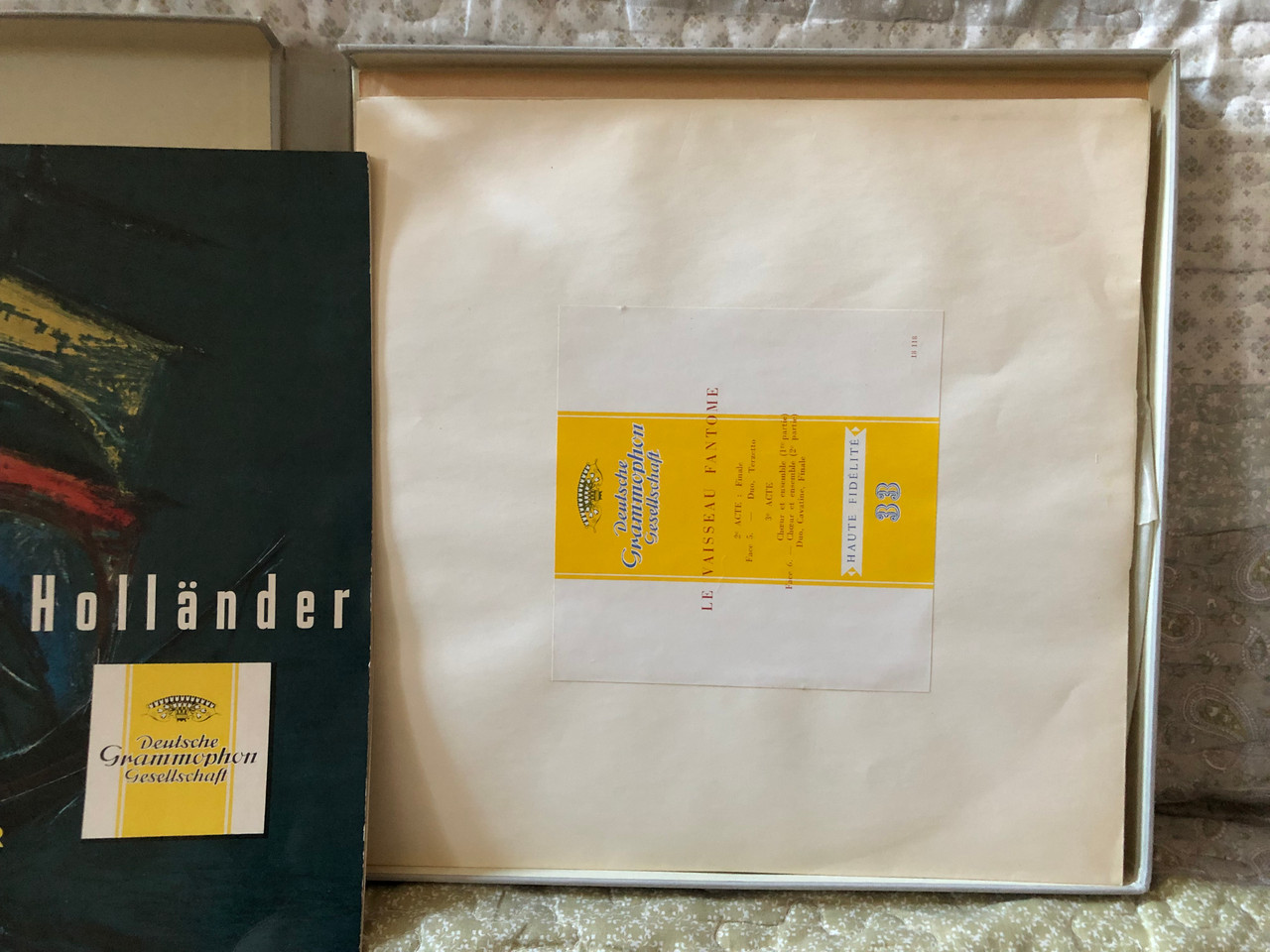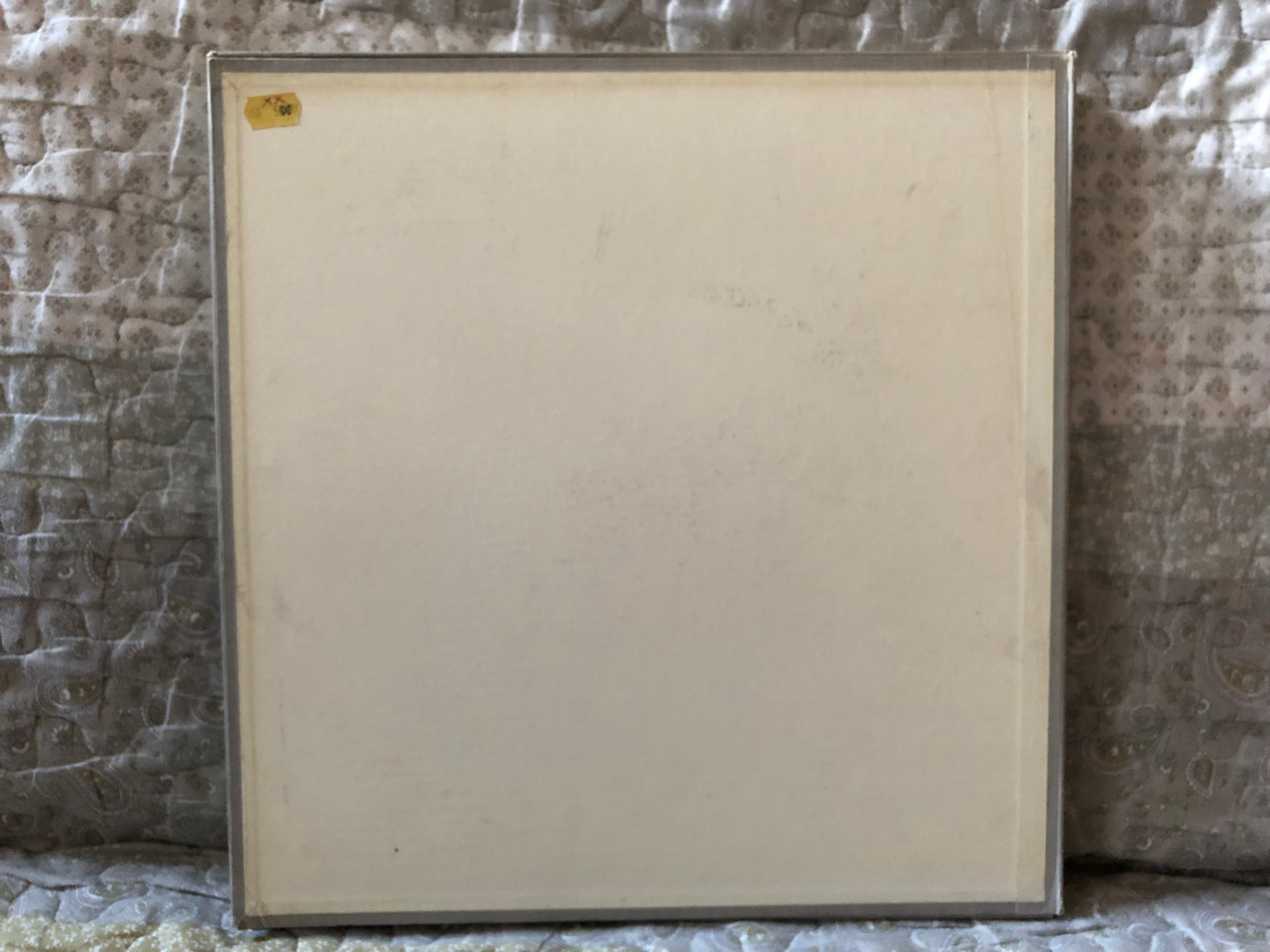Richard Wagner - Der Fliegende Holländer / Deutsche Grammophon 3x LP, Box Set
LPM 18063/65 AK
Der fliegende Holländer (The Flying Dutchman), WWV 63, is a German-language opera, with libretto and music by Richard Wagner. The central theme is redemption through love. Wagner conducted the premiere at the Königliches Hoftheater Dresden in 1843.
Wagner claimed in his 1870 autobiography Mein Leben that he had been inspired to write the opera following a stormy sea crossing he made from Riga to London in July and August 1839. In his 1843 Autobiographic Sketch, Wagner acknowledged he had taken the story from Heinrich Heine's retelling of the legend in his 1833 satirical novel The Memoirs of Mister von Schnabelewopski (Aus den Memoiren des Herrn von Schnabelewopski).
This work shows early attempts at operatic styles that would characterise his later music dramas. In Der fliegende Holländer Wagner uses a number of leitmotifs (literally, "leading motifs") associated with the characters and themes. The leitmotifs are all introduced in the overture, which begins with a well-known ocean or storm motif before moving into the Dutchman and Senta motifs.
Wagner originally wrote the work to be performed without intermission – an example of his efforts to break with tradition – and, while today's opera houses sometimes still follow this directive, it is also performed in a three-act version.
| Label: |
Deutsche Grammophon – LPM 18063/65 AK |
|---|
| Format: |
3 x Vinyl, LP, Box Set
|
|---|
| Country: |
Germany |
|---|
Released:
|
|
|---|
| Genre: |
Classical |
|---|
| Style: |
Opera, Romantic |
|---|
Tracklist:
| |
|
Der Fliegende Holländer (Romantische Oper In Drei Akten) |
|
| |
| A2a |
|
I. Akt: Introduktion (Hojohe! Hojoho!) |
|
| |
| B1 |
|
I. Akt: Lied Des Steuermanns (Mit Gewitter Und Sturm) |
|
| |
| B2 |
|
I. Akt: Rezitativ Und Aria (Die Frist Ist Um) |
|
| |
| B3 |
|
I. Akt: Szene, Duett Und Chor |
|
| |
| B4 |
|
I. Akt: Finale (He! Holla! Steuermann!) |
|
| |
| B5 |
|
I. Akt: Duet 1. Teil (Weit Komm' Ich Her) |
|
| |
| C1 |
|
I. Akt: Duet 2. Teil (Den Eidam Wünscht Ich Soll) |
|
| |
| C1a |
|
I. Akt: Chor (Halloho! Hohoho!) |
|
| |
| C1b |
|
II. Akt: Lied, Szene, Ballade Und Chor |
|
| |
| C1c |
|
II. Akt: Chor (Summ' Und Brumm', Du Gutes Rädchen) |
|
| |
| C1d |
|
II. Akt: Ballade (Jo Ho Ho! Traft Ihr Das Schiff) |
|
| |
| D1a |
|
II. Akt: Ballade 2. Teil Und Chor (Ich Sei's) |
|
| |
| D1b |
|
II. Akt: Duett (Bleib, Senta! Bleib' Nur Einen Augenblick) |
|
| |
| D1c |
|
II. Akt: Traumerzählung (Auf Hohem Felsen Lag Ich) |
|
| |
| D1d |
|
II. Akt: Finale (Mein Kind, Du Siehst Mich Auf Der Schwelle) |
|
| |
| D1e |
|
II. Akt: Finale a) Arie (Mögst Du, Mein Kind) |
|
| |
| E1a |
|
II. Akt: Chor Und Ensemble 1. Teil (Steuermann, Laß Die Wacht) |
|
| |
| E1b |
|
II. Akt: Finale b) Duett (Wie Aus Der Ferne Längst Vengang'ner Zeiten) |
|
| |
| E1c |
|
II. Akt: Finale c) Terzett (Verzeiht! Mein Volk Hält Draußen) |
|
| |
| E2 |
|
III. Akt: Introduktion |
|
| |
| F1 |
|
III. Akt: Chor Und Ensemble 2. Teil (Wahrhaftig Ja! Sie Scheinen Toll) |
|
| |
| F2 |
|
III. Akt: Finale a) Duett (Was mußt' ich hören!) |
|
| |
| F3 |
|
III. Akt: Finale b) Kavatine (Willst Jenes Tag's Du Dich Nicht Mehr Entsinnen) |
|
| |
| F4 |
|
III. Akt: Finale c) Finale (Verloren! Ach! Verloren!) |
|
- Baritone Vocals [Der Holländer] – Josef Metternich
- Bass Vocals [Daland] – Josef Greindl
- Chorus – Verstärkter RIAS-Kammerchor
- Composed By – Richard Wagner
- Conductor – Ferenc Fricsay
- Contralto Vocals [Mary] – Sieglinde Wagner
- Liner Notes – Klaus Wagner (2)
- Orchestra – RIAS Symphonie-Orchester Berlin
- Soprano Vocals [Senta] – Annelies Kupper
- Tenor Vocals [Der Steuermann Dalands] – Ernst Haefliger
- Tenor Vocals [Erik] – Wolfgang Windgassen



BOX #37








































